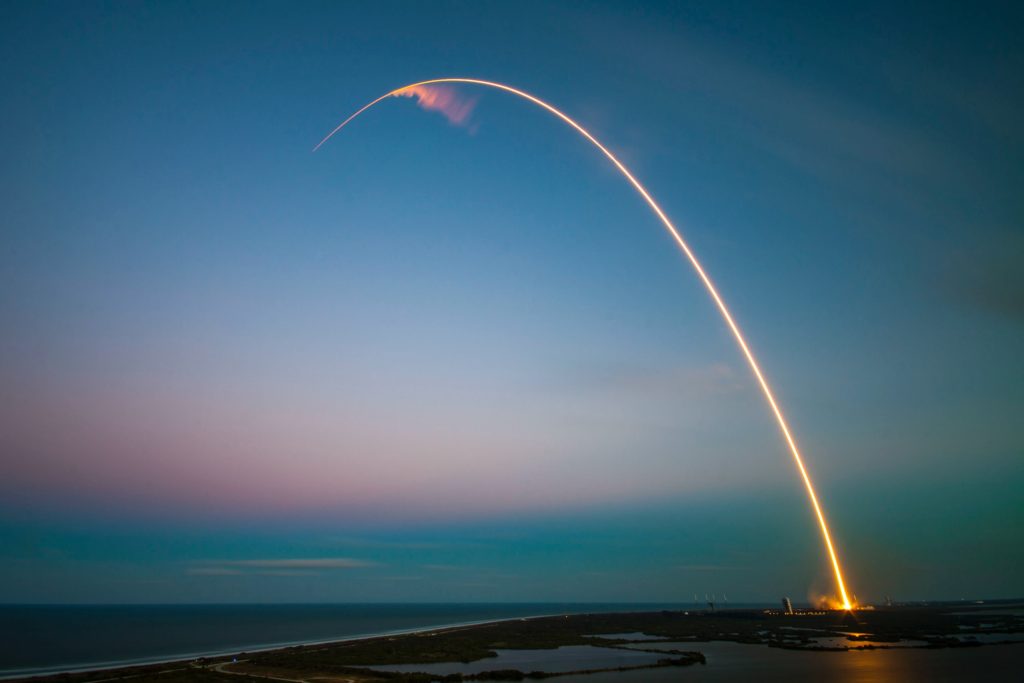 I’ve recently been into reading a lot of sci-fi novels that involve human space exploration. Most of these books have a hint of dystopian themes since, for one reason or another, the human species had to either completely abandon Earth or move part of the population off of our beautiful planet. I don’t know if this is my strange way of coping with the ongoing deterioration of our planet, but there’s no denying that at the rate of population growth and climate deniers, we will have to spend more time in space.
I’ve recently been into reading a lot of sci-fi novels that involve human space exploration. Most of these books have a hint of dystopian themes since, for one reason or another, the human species had to either completely abandon Earth or move part of the population off of our beautiful planet. I don’t know if this is my strange way of coping with the ongoing deterioration of our planet, but there’s no denying that at the rate of population growth and climate deniers, we will have to spend more time in space.
However, our fervent space exploration has now begun to litter not only our planet but the universe around us. According to the BBC, over half a million metal scraps are floating around Earth’s orbit. Granted, there are useful satellites, but there are also discarded parts from space crafts, broken satellites, and waste from astronauts. There are few laws on the disposal of waste into space, and so these hunks of nonfunctioning e-waste continue hurtling overhead at thousands of miles per hour. Due to how saturated Earth’s orbit is with these parts, we’ve already experienced reckless collisions. In 2009, two satellites crashed and exploded into thousands of pieces of metal debris. However, there is a greater risk of a crash with current functioning satellites, which could disrupt the Internet, cell communications, GPS, and even coordinated air travel, all of which depend on satellites.
European leaders recently met to discuss how the European countries plan to approach space exploration in the future to align with Europe’s Green Deal. A 15 billion euro fund will be invested to fuel European space missions with clean hydrogen fuel and launch new satellites to monitor climate change. Hydrogen fuel is a sustainable fuel source that only emits water vapor when it burns, but it is incredibly costly to produce. Part of the fund will go toward coming up with a way to cut down on production costs. The EU also wishes to launch more satellites into orbit to monitor climate change on Earth’s surface and provide better GPS service to citizens to optimize routes and cut down on fuel use. However, are these solutions enough when we’re building up more and more e-waste in the universe as we send out more of these satellites?
There are still details that must be finalized by the EU Commission before the fund is approved and put into action. But a recurring theme during the conversations thus far reflected Europe’s uneasiness of having to rely on the U.S. and China’s satellites. This need for self-sufficiency makes it seem that the EU wants a more extensive system of satellites in orbit for national security reasons. Is this a good reason to add more waste to the solar system? Maybe. But if so, we need to develop a better way of removing, or better yet, repairing older equipment.
As of this year, there are 4,700 satellites still in space; however, only about 1,800 of them are still operational. Most of these satellites never have a contingency plan on how to remove them from orbit once they stop working. But is removing them from the solar system to dispose of them on Earth enough? We’re already running out of room on the surface of the planet as we designate more and more landmass to hold our waste. In fact, certain companies and groups have proposed launching the waste into space. The solution here should be repairing and recycling older parts to prevent further waste accumulation on the surface and around our planet.
Japan’s space agency is currently testing out an electronic space whip that would knock out debris from Earth’s orbit, which would cause it to burn up in Earth’s atmosphere. However, depending on the debris’ chemical makeup, I wonder if this could cause further atmospheric problems for us. I would love to see the EU put part of this fund towards finding a way to recycle and repair old satellites and other e-waste. Private agencies, such as Space-X, have made progress in this area and have been able to bring reusable rocket cores back to Earth after launch. This kind of advancement should be another priority for the EU Commission and the rest of the world. What do you think are steps that space agencies need to keep in mind as we move forward?
Get more like this—Sign up for our daily inspirational newsletter for exclusive content!
___
Photo by SpaceX on Unsplash




